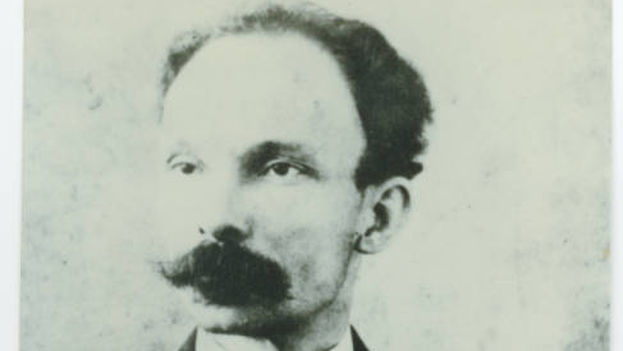
![]() 14ymedio, José Gabriel Barrenechea, Havana, 28 January 2015 — It is true that in the writings of José Martí one can apparently find the justification for political aberrations like those we suffer since Fidel Castro took off his democratic and legalistic mask in mid-1959. And I highlight here the word “apparently.”
14ymedio, José Gabriel Barrenechea, Havana, 28 January 2015 — It is true that in the writings of José Martí one can apparently find the justification for political aberrations like those we suffer since Fidel Castro took off his democratic and legalistic mask in mid-1959. And I highlight here the word “apparently.”
To achieve a sufficient understanding of the thinking of any intellectual or political figure, it is imperative to search for his or her life’s purpose. That of José Martí’s was none other than the constitution of an independent and sovereign Cuban Republicthat, through the exercise of its civil virtues, would propel a hemispheric, or even global, renewal of the republican-democratic forms. The man we call the “apostle” of our independence was able to rid himself of all dimensions of human life not having to do directly with the labor of that self-imposed apostolate.
Now, like any other thinker in the mise-en-scène of his life’s purpose, José Martí understood he was obligated to respond to minor problems. Responses that were almost always rushed and that, with the passing of years, would lend themselves to be used by others to justify their aberrations, like in the abovementioned instance. Only through this magnification of what is secondary in José Martí’s thinking could a democrat of his caliber be transformed into nothing more than an intellectual antecedent to the profoundly antidemocratic forms imposed on Cuba by the despot Fidel Castro.
Only through this magnification of what is secondary in his thinking could Martí be transformed into nothing more than an intellectual antecedent to the antidemocratic forms imposed on Cuba by Fidel Castro.
An example of this error can be found in a well-known series of Latin American essays published by Martí between 1889 and 1890. A hurried researcher will only see the obvious. Martí, disabused, distances himself for a moment from Cuban affairs to focus on others within closer reach: the OurAmericans, or los Nuestroaméricanos (title of the most important work of those in question). The reality is, nevertheless, another.
These essays were written with no other objective than to manipulate the fears of certain political elites within Latin American republics in an attempt to win them over for the cause of Cuba’s independence. Those days, Martí, a man not inclined to such behavior, did not dedicate his time to mourning bitter disillusionments. And so his life’s purpose develops fully and fruitfully like few times before or after. During those days, in the Pan-American Conference which he attends as representative of various Latin American republics, he insists on one of the most important and least known battles of his life: the fight to prevent the sale of Cuba to the United States that several Our American foreign ministries supported.
Taking these essays as a base, without considering the vital circumstance under which they were written, it has been attempted to change his arguments in order to convert Martí, the Latin American that best understood and admired the United States in his time, into an anti-American who took after an Italian conspirator of the romanticist style. This restructuring of his line of argument, by the way, serves to make us swallow the absurdity of presenting him to us as the great intellectual justifier for the return to the political forms he fought against: those of the besieged fortress, of thuggery, in other words, those that, under its firm boot, Spain subjected us to from 1837 until the end of the Great War (1868-1878).
In essence, it’s not Martí we should get rid of; instead we should dissolve the hagiographic vision that has been imposed on us by the majority of his interpreters, for whom the scope of the greatest Cuban of all time was so superior to their limited senses that they have restricted themselves to reducing him to a managable virtuous caricature. Martí was not a fanaticized follower of some inflexible principles that prevented him from compromising to achieve his objectives. On the contrary, Martí the politician understands that it is essential to give way in order to attain what is hoped for.
It’s not Martí we should get rid of; instead we should dissolve the hagiographic vision that has been imposed on us by the majority of his interpreters
The art of politics should not reside in absolute imposition or in relinquishing the least possible, rather, in the long term, whatever is relinquished can be used to achieve the original plans, or at least what doesn’t hinder them. If one tries to diminish the support of Latin American republics for the aforementioned plans of cession to the United States, one must incite their fears of a possible European re-colonization, which was not such a far-fetched idea at the end of the 19th and the beginning of the 20th centuries.
A culture is a weight that can’t be cast aside with such ease, or without harmless effects. In the case of Martí, what we should in fact do is study his work, paying close attention to his vital circumstance, until we can organize his thoughts hierarchically and clear up Martí’s argument without any preconceived notion other than that that we are not dealing with a saint, only with a human being of unusual intelligence who was able to subordinate his life to a task that he imposed on himself. A task of which we are to a considerable extent the result.
Translated by Fernando Fornaris
